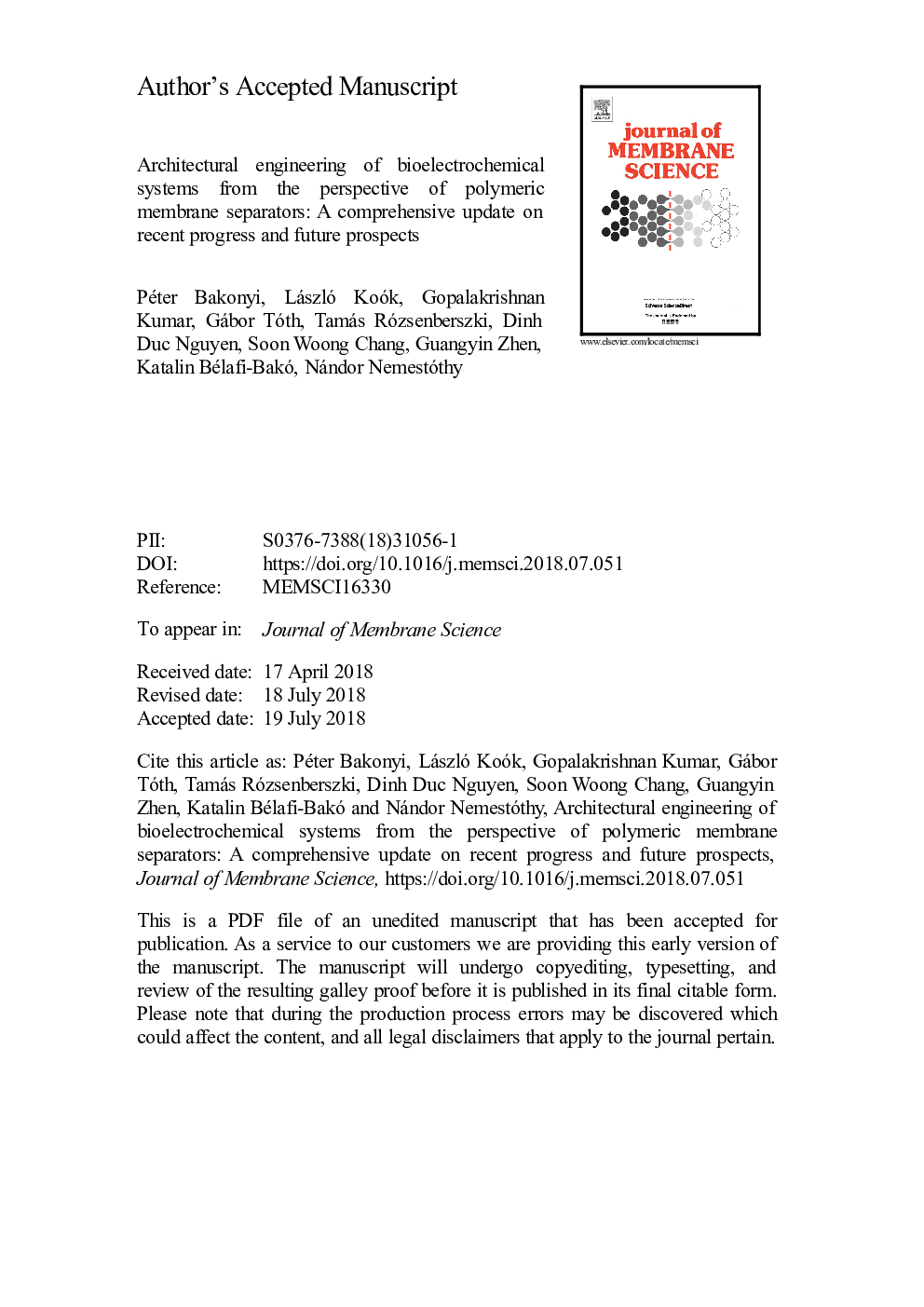| Article ID | Journal | Published Year | Pages | File Type |
|---|---|---|---|---|
| 7019570 | Journal of Membrane Science | 2018 | 83 Pages |
Abstract
Significant advances in the design of bioelectrochemical systems (BES) have promoted these applications to be seen as contemporary biotechnological platforms. However, notable issues in system architecture are still to be addressed and overcome, in particular concerning the membrane separators, which rely widely on polymers. These architectural components play a key-role in facilitating the transport of ions (i.e. protons) between the (compartments containing the) electrodes and therefore, their properties substantially influence the overall BES performance. This article aims presenting an up-to-date survey on the important accomplishments and promising outlooks with polymer-based membranes (both porous/non-porous, charged/uncharged) applied in BES (first and foremost microbial fuel cells, MFCs) that could drive this technology towards enhanced efficiency. Because of the interdisciplinary concept of BES, it attracts attention from scientists and engineers involved in environmental biotechnology, microbial electrochemistry and applied material sciences and as a result, this review paper would target the audience of these fields with particular interest on the progress with membrane separators fabricated with various polymeric materials.
Related Topics
Physical Sciences and Engineering
Chemical Engineering
Filtration and Separation
Authors
Péter Bakonyi, László Koók, Gopalakrishnan Kumar, Gábor Tóth, Tamás Rózsenberszki, Dinh Duc Nguyen, Soon Woong Chang, Guangyin Zhen, Katalin Bélafi-Bakó, Nándor Nemestóthy,
